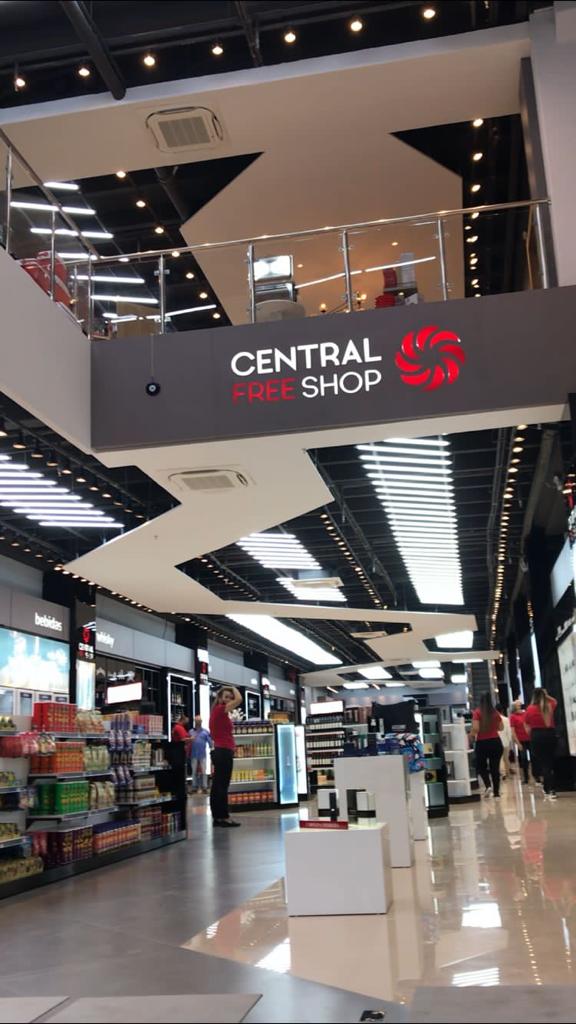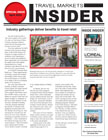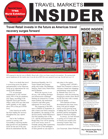The Uruguayan Chamber of Border Shops, CEFSU, and South American Duty Free Shops Association ASUTIL, hosted a virtual Border Shops meeting entitled “Returning to Normality” on Nov. 23. After a welcome from Carlos Loaiza, secretary general of CEFSU, and ASUTIL Secretary General Jose Luis Donagaray, Gustavo Fagundes, ASUTIL President and Dufry do Brasil CEO, set the scene for a morning of presentations and information on the current situation in Latin America. John Gallagher reports.
Following a three-month closure of the Uruguayan border shops due to the COVID-19 pandemic, the sales recovery has been “timid” since the reopening at the end of May, reported Carlos Loaiza, secretary general of CEFSU, the Uruguayan Chamber of Border Shops.
Speaking during a virtual Border Shops webinar organized by ASUTIL and CEFSU last week, Loaiza confirmed: “We are still some way from pre pandemic sales levels but at least we are going in the right direction.”
He said that clearances from official Uruguayan Free Zones to duty free shops on the border reached US$20 million in October in comparison with $15 million in previous months. “Although the number of tourists visiting stores was still down, average tickets had risen and were crucial in the partial recovery.”
On the legislative side, Loaiza stated that CEFSU continued to negotiate with the government for fiscal benefits for their members; with the unemployment benefit scheme being of especial aid to member companies.
With the long-held objective of creating a level playing field with the Brazilian-based stores, the Chamber has persuaded the government to look at revising the products available for sale in Uruguayan free stores and an official public consultation is underway. CEFSU is also lobbying the government to allow member companies to participate in e-commerce activities for select product categories, to allow them to compete against multinational online retailers.
Jaime Borgiani, Director of Uruguayan Customs, noted that the recovery was real although slower than hoped for. Sales had fallen by 48% from 2019 to 2020, and had recovered by 47% so far in 2021. The Wines and Spirits category had performed well, falling less and recovering more quickly than other categories. Borgiani also reported that the recovery was happening in all six cities where stores are located, although performance varied from city to city and store to store. An end-of-year review will give a more accurate picture, he said.
Marne Osorio, former mayor of Rivera and now a Uruguayan MP and one of the main members of the bilateral frontier commission, discussed how Uruguayan MPS were working to consolidate the border duty free business. All the Uruguayan political parties are supporting the unemployment benefits for store workers and are active in ensuring the shops can compete effectively with those in neighboring Brazil.


Brazilian MP Frederico Antunes, one of the initiators of the Brazilian border shop duty free legislation, reported that 19 stores are now in operation, and another 10 will open within the next quarter (all licenses have been approved). He expects several more to open during 2022. He further advised that the $500 allowance increase, which was delayed this year, is expected to become operational sometime in the next year. (Customs had approved the measure earlier in 2021, but the Ministry of Finance has not yet given the increase the final go ahead, perhaps due to the uncertain outlook of the Brazilian economy.)
Clara Susset COO of m1nd-set, reported results of a study of behavioral changes from Latin American duty free shoppers during the pandemic. One note-worthy point was the fall in the number of people buying gifts in duty free stores with self-consumption becoming more important in the rankings.
Although gift giving was less important, Susset pointed out that buying merchandise to share with others was becoming more important. Buying new brands or trying new products was also seen to be important by potential purchasers.
Marcelo Montico, CEO of Neutral Duty Free, discussed how the company operated during the worst days of the pandemic, adapting sanitary protocols to ensure the safety of customers and staff, updating its web site and launching a new cell phone application.
Neutral’s online shopping setup allowed travelers to reserve merchandise and pick it up at the store. Montico reports that Neutral’s average sales ticket has increased from US$78 to just over US$93 this year; but average in-store dwell time fell from 40 minutes to less than 21. By category, wines and spirits took over the top rank from perfumes and cosmetics – domestic prices in the Brazilian beauty market had stayed at pre-Real devaluation prices and most consumers preferred to shop locally, where they were also able to take advantage of special installment plans, only available in Brazil.
Brazilian entrepreneur Jorbel Griebeler, president of Grupo Cell Motion, is the first travel retail operator in the Triple Frontier area to own stores in two neighboring countries. Seven years after opening Cell Shop’s 7,000sqm store in Ciudad del Este in 2015, Griebeler has now opened a 2400 sqm store in Foz de Iguacu, although each store differs signifi-cantly.
“The Ciudad del Este store is big on electronics and cell phones, and in line with other stores in the town, it is more like a department store selling all categories on different floors. The Brazilian store was more in line with an airport store with perfumes and cosmetics, wines and spirits and confectionery and food being the big sellers,” said Griebeler.
“Clearly,” he added, “there is a big difference in average sales tickets with the Paraguayan store averaging just over $300 per ticket, more than three times the level of current sales ticket in Brazil in Brazil. But as I said, the product mix is very different.”
The company employs 600 employees in Paraguay and just over 100 in Brazil. Griebeler is looking to see how sales develop in Brazil once tourist traffic from Argentina and other parts of Brazil are able to visit Foz de Iguacu with no restrictions.
Next up, ASUTIL Secretary General Jose Luis Donagaray interviewed Bah Free Shop owner Paulo Pavin, about how the business was going since he opened the shop in Uruguaiana. Taking advantage of the digital format, Pavin had a colleague show delegates the store while he explained the company’s retail philosophy.
Daniel Mendelsohn, CEO of DFA Uruguay and president of CEFSU, thanked the operators and suppliers who connected to the meeting and closed the conference with positive words looking ahead to a busy holiday season on the border.









